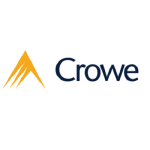Generally, payments made to non-residents for services rendered in Singapore are subject to withholding tax in Singapore under section 45A(1) of the Income Tax Act 1947 (2020 Revised Edition).
The withholding tax rate is 17% on the gross service fee if the payment is made to a non-resident person who is not an individual. However, this may be reduced or relieved if the non-resident is a resident of a jurisdiction with which Singapore has a Double Tax Agreement (DTA), subject to the conditions in the relevant tax treaty.
The withholding tax of 17% on the gross service fee is not the final tax. If the non-resident company wishes to claim deduction for the expenses incurred in deriving the service income, it must submit the certified accounts and tax computation to the Inland Revenue Authority of Singapore (IRAS) for examination.
Service fees paid to a professional firm, or professionals and public entertainers who are individuals, are covered by separate provisions and are outside the scope of this discussion.
There are two administrative concessions, as detailed below.
Administrative concession for cost reimbursement made to a related party
Where the payment is made on a cost reimbursement basis (i.e. without a profit element) to a non-resident related party for services rendered in Singapore under a cost-pooling arrangement, and the cost-pooling conditions under the IRAS e-Tax Guide Transfer Pricing Guidelines have been satisfied, withholding tax is not applicable.
The concession also applies to a situation where the non-resident related party is the head office of a Singapore branch.
The IRAS has announced that the administrative concession is only applicable for cost reimbursements liable to be paid on or before October 31 2022, after which the administrative concession will be withdrawn.
Withholding tax will be applicable to any cost reimbursement payment liable to be made on or after November 1 2022 to a non-resident related party, if the services are rendered in Singapore.
Administrative concession for reimbursement of accommodation, meals, and transportation expenses
Withholding tax is not applicable to the reimbursement of accommodation, meals, and transportation expenses (including airfares) made to a non-resident company for its employees to travel to Singapore to provide services.
This is provided that the payer can obtain a detailed breakdown of the expenses showing that the expenses were reimbursed at the actual costs incurred, without any mark-up or profit element.
The IRAS has announced that the administrative concession is only applicable for reimbursements liable to be paid to a non-resident company on or before October 31 2022, after which the administrative concession will be withdrawn.
Withholding tax will be applicable at 17% to any cost reimbursement of accommodation, meals, and transportation expenses liable to be paid on or after November 1 2022 to a non-resident company.
Take-aways
With the withdrawal of the withholding tax concessions above, all payments made to non-resident companies, apart from Singapore branches of non-resident companies, for services rendered in Singapore will be subject to withholding tax on or after November 1 2022 unless there is a specific incentive to exempt such payments from tax. However, tax treaties may reduce or relieve the withholding tax burden borne by non-resident companies, provided the conditions for tax treaty relief are satisfied.
If tax treaty relief is available, the non-resident company (that is, the recipient of the service fee) should provide its Certificate of Residence to the local payer. This should be passed on to the IRAS to substantiate that it is a resident of the tax treaty country and qualifies for the treaty benefits.
As any penalties for non-compliance will be imposed on the payer, Singapore businesses should review any service contracts with non-resident companies to ensure proper compliance under withholding tax rules.













